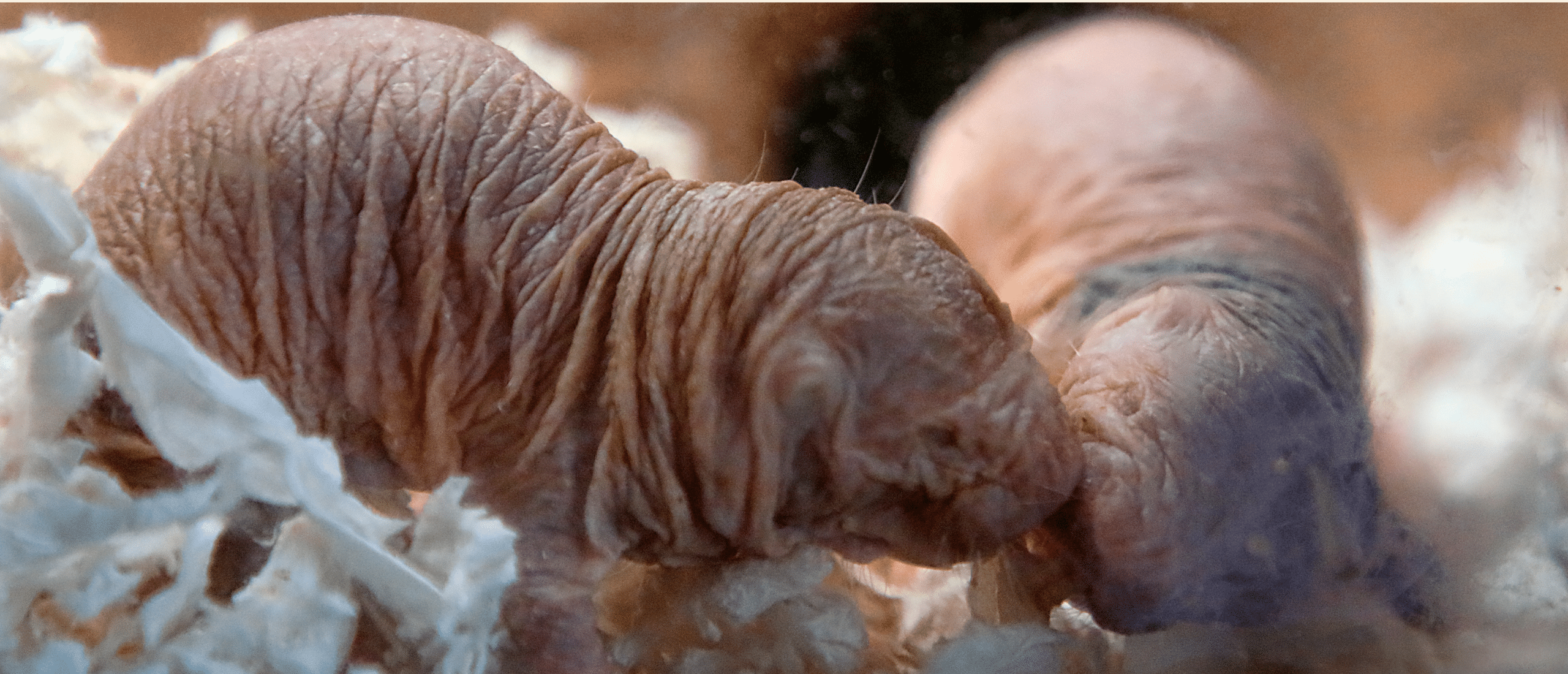Do Naked Mole Rats Hold the Key to Human Longevity?
A wrinkly, blind rodent isn’t exactly what comes to mind when you picture healthy aging. But a longevity gene in naked mole rats could be a crucial link to improving the lifespan of humans, according to a new study in the journal Nature (1), following the successful transfer of the disease and inflammation fighting gene to mice.
Naked mole rats live up to 40 years—ten times longer than other mice and rats. The hairless rodents are also highly resistant to age-related diseases like cancer, neurodegeneration, heart disease, and arthritis.
Researchers attribute their longevity and genetic hardiness to a gene called the hyaluronan synthase 2 gene. The gene produces HMW-HA—high molecular weight hyaluronic acid—a compound that directly regulates the immune system, so having more may stave off disease.
All mammals have the hyaluronan synthase 2 gene, but naked mole rats appear to have enhanced expression of this longevity gene.
When scientists transferred the naked mole rat’s turbocharged longevity gene to mice, the mice lived around 4.4 percent longer and were less likely to develop cancer. As the mice that received the gene aged, they also had less inflammation and a healthier gut than those who didn’t receive the gene.
So, what does that mean for humans?
“Our study provides a proof of principle that unique longevity mechanisms that evolved in long-lived mammalian species can be exported to improve the lifespans of other mammals,” study author Vera Gorbunova told the University of Rochester.
Humans aren’t mice, of course, but the researchers say they are looking into how this benefit can be transferred to people. The study authors believe that this benefit will likely be achieved through two possible routes—slowing HMW-HA degradation or boosting HMW-HA synthesis—which is likely to boost immunity.
“It took us 10 years from the discovery of HMW-HA in the naked mole rat to showing that HMW-HA improves health in mice,” Gorbunova says. “Our next goal is to transfer this benefit to humans.”
References
1. Zhang, et al (2023). Increased hyaluronan by naked mole-rat Has2 improves healthspan in mice.












